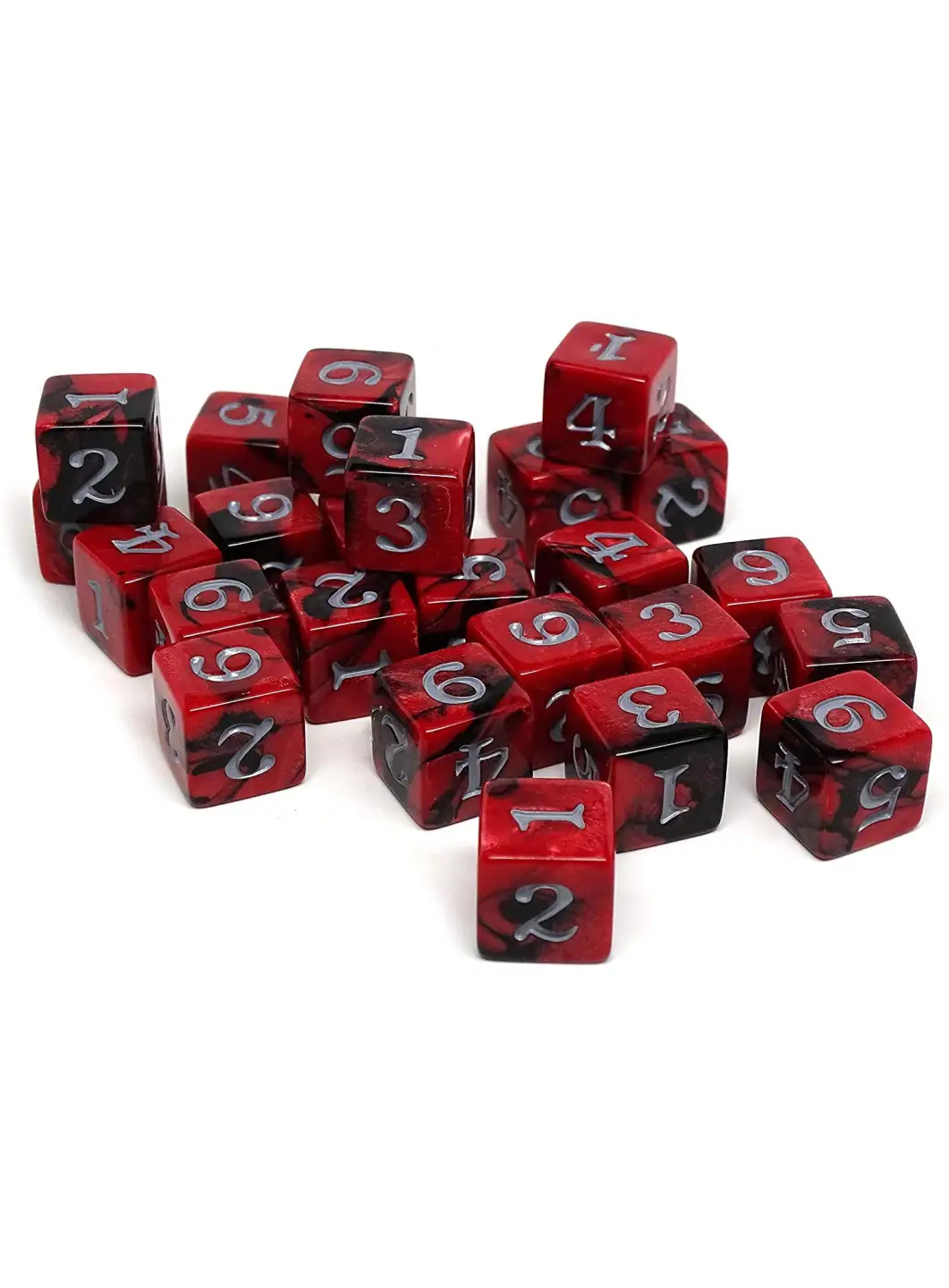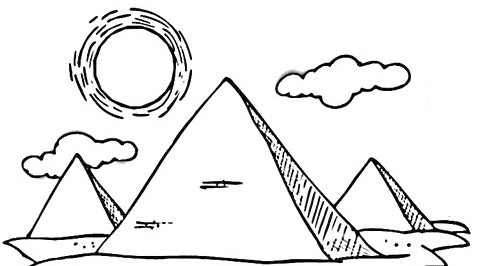Mythos Engine

Our working name for our new RPG system is the Mythos Engine. The idea is to use this for both our Lovecraft-inspired game centered around the Paranormal Intelligence Bureau (PIB) and our post-apocalyptic game, Corp Wars. We also have some other games in mind, but the PIB one will be our first focus.
On the Shoulders of Giants
I'm a huge believer in the phrase "Standing on the shoulders of giants" and like to draw inspiration from the great systems made by major thinkers within the RPG industry.
One such giant is Rob Schwalb. His Demon Lord Engine is, IMHO, the best d20 system out there. And he has included some systems that just make games so much more streamlined. And when it comes to streamlining roleplaying games, Evil Hat's Blades in the Dark is right up there with Schwalb. Their fail-forward system is one of the best I have seen so far.
Dice System
We're a huge fan of Shadow of the Demon Lord here at Ra Press, but I personally am not too excited about systems built around a d20. It is a lot better than d100, but I digress. I'm also a huge fan of d6 games like the aforementioned Blades in the Dark, WEG Star Wars, Wrath & Glory, and the Year Zero Engine. So I'm exploring a d6 pool system for the Mythos Engine.
Fail-Forward
One of my favorite systems in recent years is fail-forward. I have seen some bad implementations of this too though, where the fail forward is just another forced failure. It works for some games though, but I personally am a huge fan of giving players a choice. With that I mean, if a player fails their roll, they should get a choice to pay a price to make it into a success anyway.
Blades in the Dark does this brilliantly with consequences based on the position of the action set by the GM. So a desperate action has more serious consequences than a controlled one. In this system, all the choice and discussion happens before the roll, which is something I like. But I also like the idea of giving the player a choice to accept complications after the roll. I might go with a mix for Mythos, but playtesting will help decide this.
Player Choice
As mentioned briefly above, I'm a sucker for systems where the players can choose their own doom. And paired with a fail-forward system there should be ample opportunities for players to end up in horri... Um, interesting, situations.
So when a player rolls their d6 pool, I'm thinking any result of 6 is a complete success, 4-5 is a complicated success, while 1-3 is a fail (I'm just throwing words at this thing at this point). If a player gets at least one 6, they succeed unless the task needs more than one success. And any 6s rolled beyond those required to succeed could allow them to do more damage, or add a condition, or something else appropriate. But every roll that results in a 4-5 won't do anything unless the player chooses to accept some sort of consequence. It could be damage, a condition, increase their stress, or maybe even a worsening of their situation. Choosing a consequence for the complicated successes turns them into a complete success so their character can succeed at what they wanted to do, but at a cost.
One problem I see with having 1-3 just be a failure though, is that this isn't really failing forward... So maybe the 1-3 results could also be turned into a success but at higher costs? So consequences could be split into normal, serious, and severe, or similar. I need to explore that possibility further for sure.
Attributes, Characteristics, & Skills
Another thing I really love about Shadow of the Demon Lord is the constrain Rob shows with attributes. There are four, and IMHO, that is all you'll ever need! He's got Strength, Agility, Intellect, and Will which are used for almost all of your rolls. There are also a few characteristics, some derived from the attributes, and they're all mainly improved as the character levels up. These are Health-derived from Strength (and Healing Rate), Perception-derived from Intellect, Defense-derived from Agility, Speed, and Power (magic power). And finally, there's the bookkeepers: Damage, Insanity, and Corruption, which you mainly gain through play. That's not an awful lot of numbers to keep track of, compared to say games like DnD or Warhammer Fantasy.
The attributes are used for everything. Melee or ranged attack roll? Roll Strength or Agility. Magic blast attack roll? Roll Will or Intellect. Intimidate someone by roughing them up? Roll Strength. Persuade someone by manipulating them? Could be either a Will or an Intellect roll, depending on the situation. So elegant!
Damage
Now I have an idea where instead of the typical universal damage, any damage gained is deducted directly on your attributes instead. Sort of how the Cypher system does it. The pros here are that each attack could be more unique as to what sort of damage they do. And it affects your dice pool directly. A big con is the added bookkeeping, which I'm not a huge fan of. But damage needs bookkeeping anyway, so hey, it's not as it adds too much!
In Shadow of the Demon Lord, there's a clear split between a character's Health; as in how much damage they can take before they fall, and Damage; the amount of damage they have taken so far. This makes it easier to give penalties to Health without messing with damage and such. So if I go with a damage-to-attributes system, there should be a separate damage box next to each attribute vs updating the attribute itself.
One thing I really like in games like Tales from the Loop is where instead of taking damage, you choose one of four conditions when you fail your roll or push yourself. With a fifth condition, broken, that kicks in when the other four have already been chosen. As I mentioned earlier, I'm a sucker for letting the players choose their own doom, so I want to incorporate something similar in the Mythos Engine. Maybe when a character takes general damage, they can choose which attribute? While some effects target specific attributes. Or, instead of always reducing the dice pool for that attribute, the player can choose what happens when they take damage to an attribute? So taking Will damage might increase their Stress level while taking Strength damage gives them a level of fatigue or something. Yeah, I like this idea! Making a note to test this out.
Skills or Professions
I love simplicity. So I guess it's only natural that I abhor most skill systems in RPGs. The endless lists of skill upon skill upon skill, ugh. I get that they have their uses though, and I subscribed completely to them until I played Shadow of the Demon Lord. SotDL doesn't have skills, it uses professions. Professions are like themes for your character that helps you, and your GM, to decide on what your character knows and can do. It's so elegant that I almost cried with joy when I first tried it. Not only does it help decide what you know or can do, but it also helps build your background story, personality, and more! Imagine a starting character that has the soldier and the scholar: magic professions. The character was part of the local militia, maybe one, or both, of their parents were an officer or a constable. But they always loved reading, and magic just fascinated them so much, that they used their time in the local militia to help pay for education within magic theory. See? Two randomly rolled professions already have created an interesting start at a background story and helps with deciding on what they will do from now on. They could embrace their soldier profession and become a warrior, or take up real magic to become a magician. Or even rebel against their upbringing and become a rogue or priest.
The best part of professions though is how they replace skills. As long as a player can justify that their profession should be allowed a roll, they can usually roll. As long as the GM agrees of course. Some rolls can even get a bonus die, called boons in SotDL, because the character has a certain profession. It's simple, elegant, and, IMHO, a much better system than skills.
Until next time
I guess I should stop for now. And I came up with new approaches while writing this too, which is exactly what I wanted to do.
If you want to comment, shout at me, drop some ideas, or just chat. You can send us a tweet on Twitter, message us on our Patreon, or join our Discord.
The Mythos Engine is still in the early stages of development so all comments and ideas are welcome.

